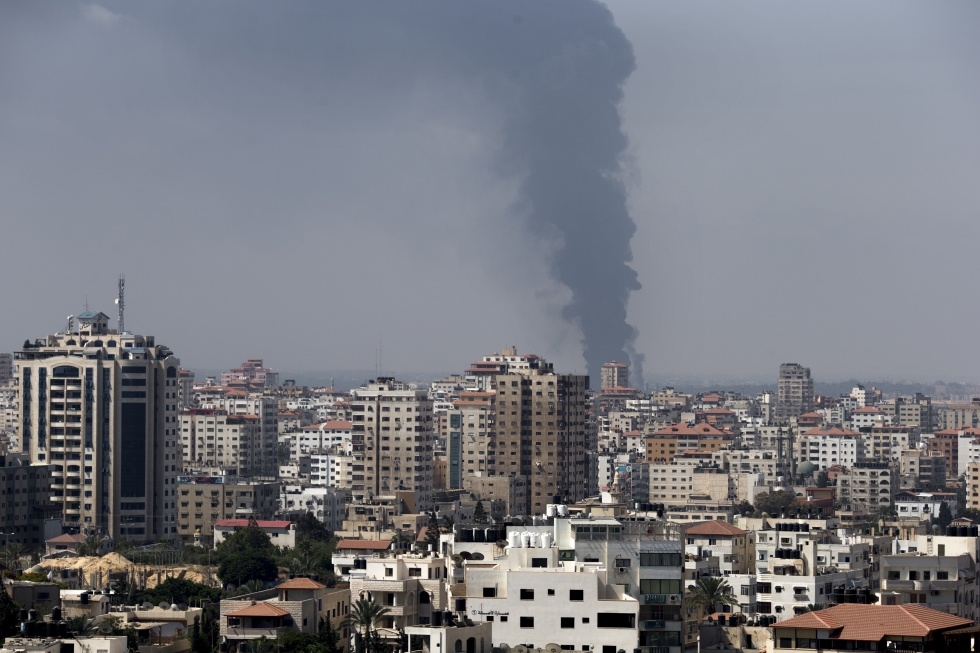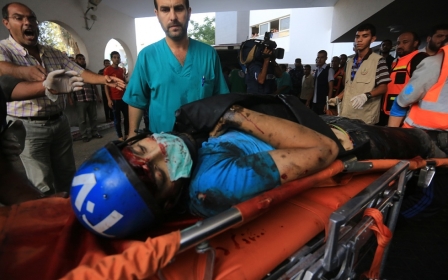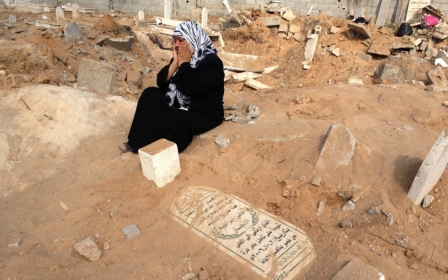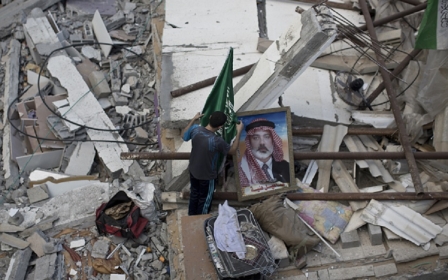Gaza flashpoints: dozens killed as Israel hits mosques, school and bank

The death toll continues to soar in Gaza. Dozens of people were killed early on Wednesday, as Israeli forces bombed a UN school and several mosques across the coastal enclave.
Health officials said 16 people were killed in an attack on the Abu Haseen School in Jabaliya, north of Gaza City, while a strike in the central area of Khan Younis killed 10 members of a single family, according to health officials.
Health Ministry spokesperson Ashraf al-Qudra says more than 1,255 have now been killed and over 7,000 injured.
More than 10 percent of the population, some 200,000 people, have sought shelter at UNRWA facilities.
UN officials have said they are at “breaking point.”
Here is a summary of the latest developments overnight and early on Wednesday morning:
- Survivors have fled the UN Abu Haseen school in Jabaliya and some are now sleeping on the streets. People had been sheltering at the school after being told to leave their homes prior to Israeli attacks.
- Gaza’s Interior Ministry has called on the UN to protect refugees and “break its silence over Israeli crimes”. A spokesperson for the Israeli army says the military are investigating the incident.
- At least nine people from the Astal family were killed in a strike on Khan Younis early on Wednesday.
- Several of Gaza’s largest mosques have been hit by Israeli air strikes. The Swsi and Khalil al-Wazir mosques were bombed, wounding members of several families resident nearby.
- The home of an al-Aqsa TV journalist was bombed in Rafah, killing him and his entire family.
- The National Islamic Bank was hit by an airstrike on Nasser Street in Gaza City.
- An 11-year-old disabled girl was killed in north Gaza when artillery fire hit her home. Many of her family members were injured in the attack.
- Several blocks of apartments have been bombed across the Gaza Strip. The latest strike was on Farra residential tower in Khan Younis.
- There have now been more than 6,320 Israeli attacks on Gaza since the military offensive began on 7 July. Over 7,450 homes have been either completely or partially destroyed in Gaza.
- There is a growing water crisis in Gaza. The power station bombing has meant that people are unable to use water in their homes or run a refrigerator to keep food fresh. This has forced people into visiting markets to buy food, which is risky given the ongoing bombardment.
- A huge fire is raging at the damaged power station. Officials said they had six million litres of fuel in reserve for emergency that is now burning and that the fire department are unable to control the blaze. People in Nussirat, near the power station, are now fleeing their homes.
- The electricity shortage has resulted in severe bread shortages.
New MEE newsletter: Jerusalem Dispatch
Sign up to get the latest insights and analysis on Israel-Palestine, alongside Turkey Unpacked and other MEE newsletters
Middle East Eye delivers independent and unrivalled coverage and analysis of the Middle East, North Africa and beyond. To learn more about republishing this content and the associated fees, please fill out this form. More about MEE can be found here.





